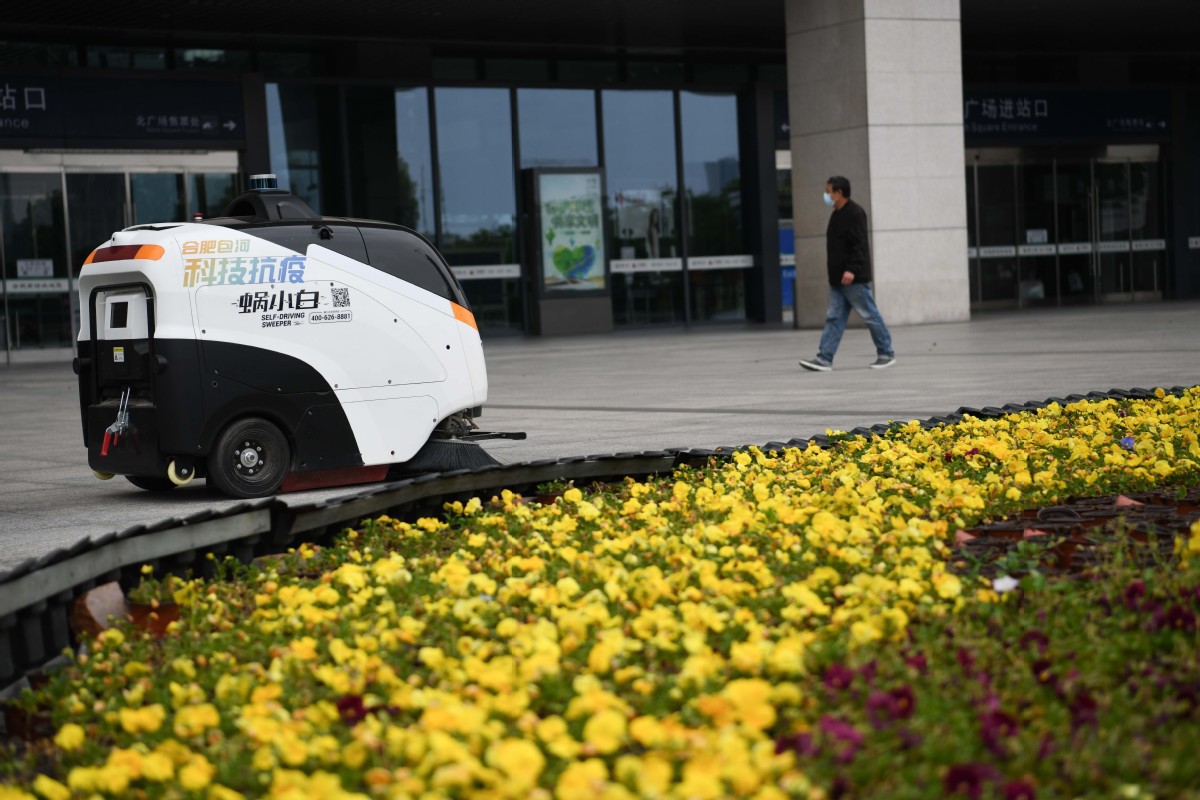Nation emerging as global pioneer in AI technology
By MA SI | China Daily Global | Updated: 2022-07-06 10:00

China is emerging as a pioneer in artificial intelligence as it makes strides in filing AI patents and experimenting with the latest AI technology to power industrial applications, industry experts said.
Their comments came after a Stanford University report that shows China filed more than half of all the world's AI patent applications last year and Chinese researchers produced about one-third of AI journal papers and AI citations in 2021.
Wu Hequan, an academician at the Chinese Academy of Engineering, said China has been working to build a solid foundation to support its AI economy and is making significant contributions to AI globally.
The Stanford University report said that Chinese researchers have been the most prolific for several years, publishing 27.5 percent of all AI journal articles worldwide. In comparison, US researchers accounted for 12 percent. Chinese journal articles also led those of every other nation in citations, an indication of their scientific importance.
In economic investment, China accounted for nearly one-fifth of global private investment funding in 2021, attracting $17 billion for AI startups, a sign of a robust AI ecosystem.
Shen Kai, a partner at market consultancy McKinsey, said, "Today, the AI adoption is high in China in finance, retail, and high tech, which together account for more than one-third of the country's AI market."
Most of the AI applications that have been widely adopted in China have been in consumer-facing industries, propelled by the world's largest internet consumer base and the ability to engage with consumers in new ways to increase customer loyalty, revenue, and market valuations, Shen and his colleagues said in a report.
"In the coming decade, our research indicates that there is tremendous opportunity for AI growth in new sectors in China, including in the automotive, transportation and logistics, manufacturing, enterprise software, and healthcare and life sciences sectors," Shen added.
McKinsey forecast that the next wave of AI in these sectors could create upward of $600 billion in economic value annually for China. To put the number in context, the 2021 gross domestic product of Shanghai was roughly $680 billion.
China now ranks second among the top five countries for scientific research in medical AI, just behind the United States, said a report from Elsevier, a Netherlands-based academic publishing company that owns recognized medical journals such as The Lancet and Cell.
The number of medical AI clinical trials initiated by China ranks first in the world. China has already entered the ranks of the world's leading medical AI research countries, Elsevier said.
Li Lin, managing director of Elsevier China, said that as early as 2017, the State Council, China's cabinet, put forward a development plan for new generation AI that called for efforts to build a fast and accurate intelligent medical system by promoting new AI-enabled medical treatment methods and models.
The forward-looking policy motivated Chinese companies and medical institutions to actively explore how to integrate AI into healthcare.
For instance, AI-assisted medical imaging systems were used in many Chinese hospitals amid the COVID-19 pandemic to help quickly classify the pneumonia caused by the virus according to its severity, precisely calculate the burden on the lungs and provide 4D dynamic pathology comparisons-4D adds the aspect of motion to 3D imaging.
Zhang Dapeng, presidential chair professor at the School of Data Science of the Chinese University of Hong Kong in Shenzhen, said, "In the future, China will continue to lead the world in AI areas such as intelligent medical care and biometric identification. Chinese scientists can make a greater contribution."
With greater research and development spending, Chinese researchers are also deepening international cooperation in AI.The Stanford University report found that in China, 500 institutions published 2,000 cross-border AI projects last year, and China-US collaboration on AI research has quintupled since 2010 and totaled 9,660 papers in 2021.
"What's clear is that the amount of collaboration between the United States and China has gone up dramatically, and it has gone up much more than collaboration between any two other countries," said Raymond Perrault, an AI researcher and a distinguished computer scientist at SRI International, which is formerly known as the Stanford Research Institute.
























